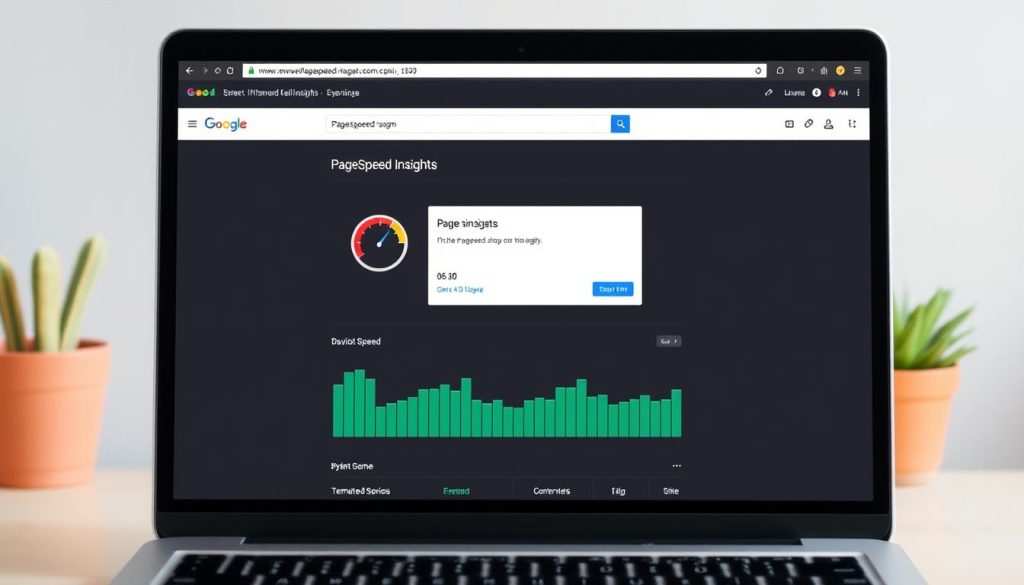As a freelancer, having a strong online presence is crucial for attracting clients and growing your business. With the ever-increasing competition in the freelance market, it’s essential to stand out from the crowd by optimizing your website for search engines.
This comprehensive guide will explore how freelancers can leverage SEO strategies to enhance their online visibility and attract more clients. By understanding the fundamental principles of search engine optimization, you’ll be able to establish a robust digital presence and improve your search rankings.
By implementing actionable strategies and focusing on sustainable, long-term practices, you’ll be able to generate more leads through organic search traffic and take your freelance career to the next level.
Table of Contents
Key Takeaways
- Understand the fundamental principles of search engine optimization
- Learn actionable strategies to enhance online visibility
- Improve search rankings and generate more leads
- Establish a robust digital presence as a freelancer
- Focus on sustainable, long-term SEO practices
Why SEO Matters for Your Freelance Success
To thrive as a freelancer, understanding and implementing SEO strategies is vital. In a competitive market, your online presence can make or break your business. Effective SEO optimization can be the difference between being visible to potential clients and being lost in the vast digital landscape.
SEO is particularly crucial for freelancers who often compete against larger agencies and companies with bigger marketing budgets. By optimizing your website for search engines, you can level the playing field and appear in search results alongside established competitors.
The Impact of SEO on Client Acquisition
Improved search visibility directly translates to more client inquiries. When your site is optimized for relevant keywords, you attract more targeted traffic, increasing the likelihood of converting visitors into paying clients. Freelancers with optimized websites typically see higher conversion rates, as their sites are more likely to appear in front of their ideal audience.
How SEO Creates Passive Lead Generation
SEO creates a sustainable system where potential clients can find you 24/7, even when you’re not actively marketing your services. This passive lead generation is a game-changer for freelancers, as it provides a consistent stream of potential clients without the need for continuous active marketing. By investing in SEO, you’re building a long-term strategy that yields results over time, making it particularly valuable for freelancers with limited marketing budgets.
By understanding and leveraging SEO, freelancers can transform their businesses, achieving a higher return on investment and establishing a strong online presence that attracts clients and drives growth.
Setting Up Your Freelance SEO Foundation

Before diving into advanced SEO techniques, it’s essential to lay a solid foundation for your freelance business. This involves understanding your niche, establishing a professional online presence, and preparing your website for search engine crawling and indexing.
Defining Your Service Niche and Target Clients
Defining your service niche is a critical step in establishing a successful freelance SEO strategy. By focusing on a specific area of expertise, you can tailor your content and SEO efforts to attract high-quality clients searching for your specialized services. To define your niche, consider the following:
- Identify your areas of expertise and the services you offer.
- Research your target clients and their search behaviors.
- Analyze the competition and identify gaps in the market.
As emphasized by SEO experts, « Understanding your niche is crucial for creating content that resonates with your target audience and ranks well in search results. » By narrowing down your niche, you can improve your visibility in search engines and attract more relevant clients to your website.
Establishing Your Professional Online Presence
Establishing a professional online presence is vital for freelancers. This includes selecting a relevant domain name, creating a well-structured website, and planning high-quality content. To enhance your online presence:
- Choose a domain name that reflects your brand and is easy to remember.
- Set up a professional website with clear navigation and relevant pages.
- Plan your content to address the needs and questions of your target clients.
Before proceeding, check if Google has already indexed your site by using the site: search operator. If your site is not indexed, ensure there are no technical issues preventing it from appearing in Google search results.
By following these steps, you can establish a strong SEO foundation that supports your freelance business growth and attracts potential clients.
SEO Optimization Strategies Tailored for Freelancers
Effective SEO optimization is key to a freelancer’s success in a competitive digital landscape. As a freelancer, understanding and implementing the right SEO strategies can significantly enhance your online visibility, attract potential clients, and drive business growth.
On-Page vs. Off-Page vs. Technical SEO for Freelancers
SEO for freelancers encompasses three main areas: on-page SEO, off-page SEO, and technical SEO. On-page SEO involves optimizing the quality and structure of the content on your webpage, focusing on content quality, keywords, and HTML tags. Off-page SEO is about building your website’s reputation through backlinks from other reputable sites and internal linking. Technical SEO improves your site’s overall performance on search engines by enhancing site security, user experience, and structure.
| SEO Type | Description | Key Elements |
|---|---|---|
| On-page SEO | Optimizing webpage content | Content quality, keywords, HTML tags |
| Off-page SEO | Building website reputation | Backlinks, internal linking |
| Technical SEO | Improving site performance | Site security, UX, structure |
For freelancers, balancing these SEO approaches is crucial. By understanding your specific goals and resources, you can prioritize certain SEO elements. For instance, if you’re just starting out, focusing on on-page SEO to optimize your service pages might be more feasible.
Creating a Sustainable SEO Roadmap for Solo Practitioners
Creating a sustainable SEO roadmap is essential for solo practitioners who need to manage their time effectively. Start by setting realistic goals and timelines. For example, you might dedicate one day a week to SEO tasks, such as content creation, link building, or technical optimization.
« Consistency is key in SEO. Regularly updating your content and monitoring your site’s performance can lead to significant improvements over time. » – SEO Expert
By incrementally implementing SEO strategies and being patient, freelancers can achieve long-term success. Remember, SEO is a marathon, not a sprint. With a well-planned roadmap, you can steadily improve your online presence and attract more clients.
Keyword Research: Finding Your Ideal Clients Online
Effective keyword research is the cornerstone of any successful SEO strategy for freelancers. By understanding the terms and phrases your potential clients use when searching online, you can tailor your content to meet their needs and stand out from the competition.
Identifying High-Value Client Search Terms
To attract high-quality leads, you need to identify keywords that indicate a clear intent to hire. Tools like Google Suggest and Answer the Public can help you discover these valuable search terms. By analyzing the suggestions provided by these tools, you can create a list of relevant keywords that your target audience is searching for.
Long-tail keywords, in particular, offer a less competitive avenue for attracting clients. Although they have lower search volumes, they are more specific and less competitive than broader terms, making it easier to rank for them in search results.
Analyzing Competition and Finding Your SEO Edge
Understanding your competition‘s SEO strategy is crucial for finding your unique edge. By analyzing the keywords your competitors are targeting, you can identify gaps in their strategy and opportunities to differentiate your services. This research enables you to create content that not only attracts potential clients but also showcases your expertise and value proposition.
By focusing on your strengths and the specific needs of your target audience, you can develop an SEO strategy that drives online visibility and attracts high-quality leads. This involves finding the right balance between competing for popular keywords and targeting less competitive, high-value terms.
Creating Content That Attracts and Converts Clients
Content that attracts and converts clients is the cornerstone of a successful freelance SEO strategy. As a freelancer, your website’s content plays a crucial role in influencing your search engine rankings and convincing potential clients to hire your services.
To achieve this, you need to create two distinct types of content: service pages that convert visitors into clients and authority content that establishes your expertise. Both types are essential for a comprehensive SEO strategy that drives results.
Optimizing Service Pages for Conversions
Service pages are critical for converting visitors into clients. To optimize these pages, focus on the following elements:
- Clear Value Proposition: Clearly communicate what services you offer and the benefits you provide to clients.
- Relevant Keywords: Incorporate relevant keywords naturally into your service page content to improve search engine rankings.
- Social Proof: Use client testimonials and case studies to demonstrate your expertise and build trust with potential clients.
- Calls-to-Action (CTAs): Include clear and prominent CTAs to encourage visitors to take the next step, whether it’s contacting you or hiring your services.
For more detailed guidance on optimizing your website, you can refer to our comprehensive guide on boosting your search engine ranking.
Developing Authority Content That Showcases Expertise
Authority content helps establish your expertise and attracts organic traffic to your website. This can include case studies, tutorials, and thought leadership pieces that demonstrate your knowledge and skills.
When creating authority content, focus on:
- Addressing Client Pain Points: Create content that addresses the questions and challenges your potential clients face at different stages of their buyer journey.
- Showcasing Your Expertise: Use your content to demonstrate your expertise and showcase your success stories.
- Targeting Valuable Keywords: Identify and target keywords that are relevant to your services and have a high potential for driving organic traffic.
By combining optimized service pages with authoritative content, you can create a powerful SEO strategy that attracts and converts clients, establishing your authority in your niche.
On-Page SEO Techniques for Your Freelance Website

To stand out in the competitive freelance market, it’s essential to implement on-page SEO strategies that improve your website’s search engine ranking. Effective on-page SEO techniques can make a substantial difference in how easily potential clients can find your freelance services online.
Crafting Client-Focused Titles and Meta Descriptions
Crafting compelling titles and meta descriptions is crucial for attracting potential clients to your website. These elements should be client-focused, incorporating relevant keywords naturally while encouraging clicks. For instance, a well-structured title might include your primary service and location, such as « Expert Web Development Services in Paris. »
When writing meta descriptions, ensure they provide a clear summary of the page content and entice users to click through. The optimal length for meta descriptions is around 155-160 characters, making every word count. By strategically using keywords and phrases, you can improve your page’s visibility in search results.
Strategic Internal Linking to Highlight Your Services
Internal linking is a powerful technique for guiding visitors through your site and highlighting your key service offerings. By creating a logical site structure, you help both users and search engines understand the relationship between different pages on your website. This can be achieved by linking to relevant service pages from your homepage or other related content.
When implementing internal linking, focus on using descriptive anchor text that indicates the content of the linked page. For example, instead of using generic text like « Click here, » use specific phrases like « Learn more about our web development services. » This approach not only enhances user experience but also contributes to a more strategic distribution of page authority throughout your site.
Building a Portfolio That Ranks and Impresses
In the digital age, a freelancer’s portfolio is not just a showcase of past projects, but a critical tool for attracting new clients and improving SEO rankings. A well-structured portfolio can make a significant difference in how potential clients perceive your services and expertise.
SEO-Optimized Case Studies and Project Showcases
Creating SEO-optimized case studies and project showcases is essential for demonstrating your expertise while improving your search engine rankings. To achieve this, focus on structuring your case studies with the right keywords, maintaining a compelling narrative that highlights your skills. Include specific results, metrics, and process details that both potential clients and search engines value.
For instance, when showcasing a successful project, detail the challenges faced, the strategies implemented, and the outcomes achieved. This not only demonstrates your problem-solving abilities but also provides valuable content for search engines to index.
Using Client Success Stories as Ranking Opportunities
Leveraging client success stories is another effective way to enhance your portfolio’s SEO. By targeting specific problem-solution keywords, you can create content that ranks for terms your ideal clients are searching for. Ethically using client testimonials and results, you can develop a narrative that showcases your expertise and the value you bring to clients.
For example, you can create detailed case studies around client success stories, highlighting the challenges, solutions implemented, and the results achieved. This approach not only boosts your credibility but also improves your search engine rankings by providing relevant, keyword-rich content.
By focusing on these strategies, you can transform your portfolio into a powerful SEO asset that attracts clients and improves your search rankings.
Technical SEO Essentials for Freelancers
In the digital age, freelancers must prioritize technical SEO to improve their website’s user experience and search engine rankings. Technical SEO optimizations are done on the back end of your website to ensure it meets Google’s site security and user experience requirements.
Mobile Optimization and Page Speed Improvements
Mobile optimization and page speed are critical factors in technical SEO. Ensuring your website is mobile-friendly and loads quickly is essential for both user experience and search engine rankings. You can use tools like Google’s PageSpeed Insights to test your site’s speed and identify areas for improvement.

To improve page speed, consider optimizing image sizes, leveraging lazy loading, and minimizing the impact of JavaScript and CSS on page load times. For a comprehensive guide on improving your website’s performance, check out our detailed guide on on-page SEO.
Implementing Freelancer-Specific Schema Markup
Schema markup is a powerful tool that helps search engines understand your website’s content. By implementing freelancer-specific schema markup, you can enhance your search results with additional information about your services, such as reviews and business hours.
To implement schema markup, you can use Google’s Structured Data Markup Helper to create the necessary code. This can help improve your website’s visibility in search results and attract more clients.
Regular technical audits are crucial to ensure your website continues to meet evolving search engine requirements. By staying on top of technical SEO, you can maintain a competitive edge and attract more clients to your freelance business.
Local SEO: Capturing Clients in Your Area
Local SEO is a powerful tool for freelancers looking to attract clients in their area. By optimizing your online presence for local search, you can increase your visibility, drive more targeted traffic to your website, and ultimately capture more clients in your area.
Optimizing for Location-Based Service Searches
To optimize for location-based service searches, you need to incorporate location-specific keywords naturally into your content, titles, and meta descriptions. This includes using keywords related to your service area, such as city or region names, and ensuring that your NAP (Name, Address, Phone) information is consistent across the web.
Consistent NAP information is crucial for local SEO, as it helps search engines understand your business’s location and relevance to local searches. Audit and correct any discrepancies in your NAP information to improve your local search visibility.
Setting Up Google Business Profile for Freelancers
Setting up a Google Business Profile is essential for freelancers, even if you don’t have a traditional storefront. This profile helps you manage your online presence across Google, including Google Maps and Search.
To maximize the impact of your Google Business Profile, ensure you provide accurate and up-to-date information, including your business name, address, phone number, and hours of operation. You can also add photos, respond to reviews, and post updates to engage with your clients.
By implementing these local SEO strategies, you can improve your visibility in local search results, attract more clients in your area, and grow your freelance business.
Essential SEO Tools for Budget-Conscious Freelancers
Effective SEO doesn’t have to break the bank; there are numerous free and low-cost tools available to freelancers. To maximize your online presence without overspending, it’s crucial to leverage the right set of tools.
Free and Low-Cost SEO Analysis Tools
For freelancers, having access to SEO analysis tools is vital for keyword research, competitor analysis, and rank tracking. Tools like Google Analytics and Google Search Console are indispensable and free. They provide insights into website traffic, engagement metrics, and technical SEO performance.
Other affordable options include keyword research platforms that help identify high-value search terms. By utilizing these tools, freelancers can refine their SEO strategies and improve their online visibility.
Time-Saving SEO Automation for Solo Practitioners
Solo practitioners can significantly benefit from SEO automation tools that streamline routine tasks such as rank tracking, content audits, and backlink monitoring. By automating these processes, freelancers can save time and focus on high-leverage activities like content creation and client acquisition.
To learn more about hiring an expert to further boost your SEO efforts, consider visiting this resource for valuable insights.
Measuring and Improving Your SEO Performance
Measuring SEO performance is a vital step in refining your strategy to attract more clients. As a freelancer, understanding the impact of your SEO efforts is crucial for long-term success. Every change you make to your website will take some time to be reflected in Google’s search results. It’s essential to be patient and consistently measure your performance to make data-driven decisions.
Key Metrics That Matter for Freelancers
To effectively measure SEO performance, you need to focus on key metrics that truly indicate business growth. Organic traffic, conversion rates, and keyword rankings are among the most important metrics. These indicators will help you understand how your SEO efforts are contributing to client acquisition and revenue.
Setting up proper tracking for these metrics is crucial. Tools like Google Analytics can provide valuable insights into your website’s performance. Creating dashboards tailored to your freelance business will help you monitor your progress and make informed decisions.
Adjusting Your Strategy to Maximize Client Acquisition
Once you have a clear understanding of your SEO performance, you can begin to adjust your strategy to maximize client acquisition. This involves conducting effective A/B testing of different SEO approaches and prioritizing optimization efforts based on potential impact.
Freelancers who have successfully pivoted their SEO strategies based on performance data have seen significant improvements. By continuously monitoring your metrics and making adjustments as needed, you can refine your SEO strategy to better attract clients and grow your business.
Remember, SEO is a long-term investment that requires ongoing refinement. By staying committed to measuring and improving your SEO performance, you can achieve sustainable growth and success as a freelancer.
Conclusion: Your Roadmap to SEO Success as a Freelancer
By understanding and leveraging SEO best practices, freelancers can improve their search engine rankings and increase their online visibility. This guide has provided a comprehensive roadmap to SEO success, covering essential strategies for optimizing your website and enhancing your online presence.
To achieve SEO success, it’s crucial to implement a combination of on-page, off-page, and technical optimization techniques. Start by focusing on the most critical elements, such as keyword research, content creation, and local SEO. As you progress, continually refine your strategy based on the results you achieve.
Remember, SEO is an ongoing process that requires consistent attention. By following this guide and staying committed to your SEO efforts, you can establish a strong online presence, attract more clients, and drive the success of your freelance business.
Take the next step today by implementing these strategies and watching your freelance career flourish.
FAQ
What is the importance of keyword research for freelancers?
Keyword research helps freelancers identify high-value client search terms, understand their target audience, and create content that resonates with potential clients, ultimately driving more leads and conversions.
How does on-page SEO impact my freelance website’s visibility?
On-page SEO techniques, such as crafting client-focused titles and meta descriptions, strategic internal linking, and optimizing service pages, improve your website’s visibility, making it more likely to rank higher in search engine results and attract potential clients.
What is the role of technical SEO in my freelance business?
Technical SEO ensures that your website is crawlable, mobile-friendly, and has a fast page speed, which are essential for providing a good user experience and improving your website’s search engine rankings.
How can I leverage off-page SEO to establish authority in my field?
Off-page SEO strategies, such as guest posting, industry collaborations, and leveraging client testimonials, help establish your authority and credibility in your field, driving more clients to your freelance business.
What are some essential SEO tools for budget-conscious freelancers?
Free and low-cost SEO analysis tools, such as Google Search Console and Google Analytics, as well as time-saving SEO automation tools, can help freelancers optimize their website and improve their search engine rankings without breaking the bank.
How do I measure the success of my SEO efforts as a freelancer?
Key metrics, such as website traffic, search engine rankings, and lead generation, help you measure the success of your SEO efforts and make data-driven decisions to adjust your strategy and maximize client acquisition.
Can local SEO help me capture clients in my area?
Yes, local SEO strategies, such as optimizing for location-based service searches and setting up a Google Business Profile, can help you capture clients in your area and grow your freelance business locally.
How often should I update my SEO strategy as a freelancer?
You should regularly review and update your SEO strategy to stay up-to-date with the latest best practices, algorithm changes, and industry trends, ensuring you remain competitive and continue to attract new clients.





